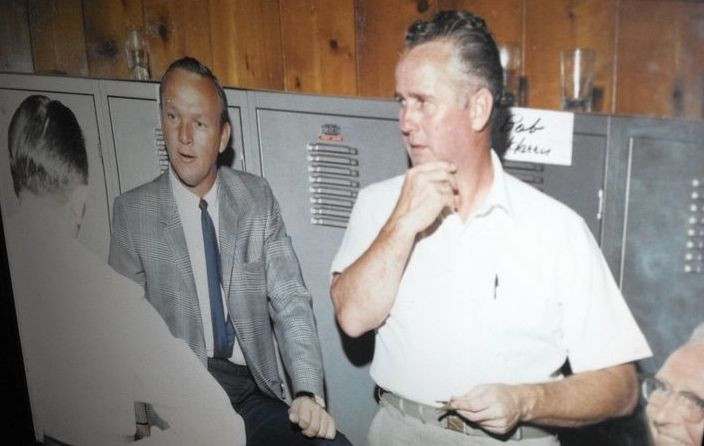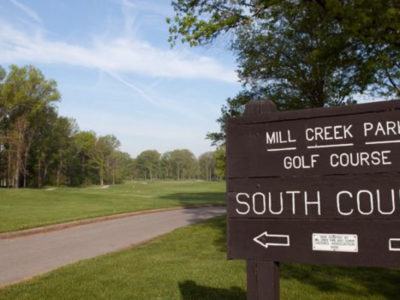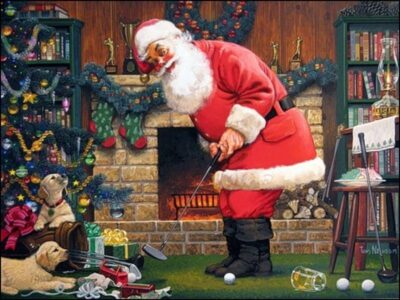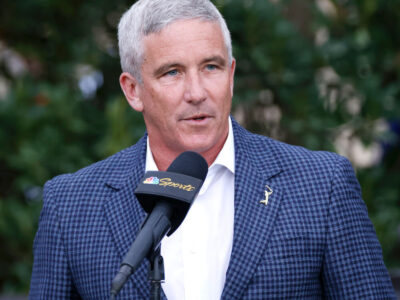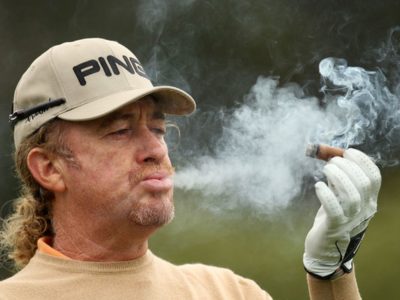By Mike Hutton, Post-Tribune of Indiana
(Reprinted with permission)
Bob McCall walked into Lake Michigan on Nov. 12, 1987, wearing only a hospital gown, paper slippers and underwear.
McCall had slipped away from an orderly at Northwestern Memorial Hospital. He had been hospitalized for severe depression — depression so bad that his wife Jean McCall feared he would kill himself.
Police found his body two hours later, washed up on the beach, with whitecaps plashing over his muscular frame. He had jumped into the frigid water in the middle of a storm.
The one-paragraph obituary in the Chicago Tribune two days later noted that McCall, 61, was a “prominent amateur golfer and (who) was inducted into the Hall of Fame at Colgate University in New York for his performance in intercollegiate football and golf.” Only a few months earlier, McCall had qualified for the U.S. Senior Amateur.
What the obituary didn’t say was that McCall was Arnold Palmer’s best friend, before Palmer turned golf into a television sport, before he paved the way for the big money, and before he won six majors. 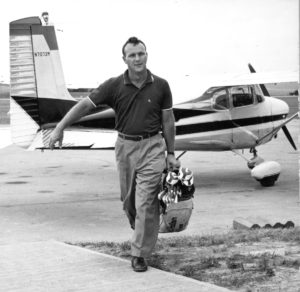
When Palmer joined the tour in 1954, McCall was the guy he wanted to share the long car rides between tournaments, as well as, the exhausting, high-risk life of a touring pro.
They were golf hustlers then, playing high-stakes matches during the day and hitting the Cleveland bars at dusk. Palmer wanted to play with McCall on the PGA Tour because he really was that good — every bit as good as the King himself. Some golfers swear McCall, who lived in Merrillville, was better than Palmer. The day that Palmer found out McCall died, Palmer wrote on a plaque that was presented to Jean in honor of her late husband, for his legacy in the Lake-Porter Golf Tournament, was “one of the saddest moments of my life.”
McCall, a working class kid from Youngstown, Ohio, was a star football player and golfer for Colgate.
Palmer, the son of a greenskeeper from Latrobe, Pa., was utterly devoted to the golf.
That was the singular difference between the two. Palmer was all golf all the time.
He had spent his days at Wake Forest on the putting green instead of in classes, dropping out before getting his degree.
McCall had done a stint in the Navy before starting at Ohio State and then transferring to Colgate. He was a bruising, barrel-chested linebacker/center with tree stumps for legs. He and Palmer first crossed paths in college.
McCall was three years older than Palmer, but was in the service for three years before college.
In 1950, McCall finished second to Purdue’s Fred Wampler in the NCAA Tournament.
Palmer and McCall met again in Cleveland, where Palmer was stationed in the Coast Guard. McCall had moved to Cleveland, taking a job with Wilson Sporting Goods.
They developed an inseparable bond, traveling all over to play in matches.
“He was one of my best friends ever,” Palmer said. “He could play. He was very good. We had a lot of fun. We played all kinds of matches against everybody in the world.”
He was so good that Palmer thought McCall would turn pro. Before Palmer won the 1954 U.S. Amateur, he asked McCall to play the tour with him and was surprised when his buddy turned him down. It was a risk that McCall didn’t want to take. McCall’s friends claim he told Palmer,
“He couldn’t make a living out of the back seat of a car.”
Bill Edwards, who played golf with McCall at Colgate, recalled McCall telling him that Palmer even offered to split the money they both made, but he wasn’t interested in the long car rides and sporadic paychecks.
In an answer to that offer, McCall told Palmer,
“I don’t think that is a very good deal because I’ve beat you every day for the last two weeks.”
Palmer said of his dear friend years later,
“I think he could’ve done anything he wanted. He was very versatile. I think he could’ve made it on tour, but he liked to socialize and selling was his bag.”
Instead, Palmer traveled with Dow Finsterwald and McCall moved to Gary, Indiana, after winning the Ohio Amateur in 1956, a field that included a young Jack Nicklaus.
McCall took a job as president of Hunter Construction and settled nicely into family life with his wife Jean and, eventually, son Mark and daughter Molly.
While Palmer won the 1958 Masters, the first of his seven majors, McCall dominated golf in Gary. He won the Gary Country Club (now Innsbrook) club championship 15 or 16 times, according to various sources, sometimes by as many as 20 shots.
Over the years, because of his friendship with McCall, Palmer would bring golfers to Gary Country Club to play in exhibitions. Nicklaus played there in 1962, after he won the U.S. Open, as did Tony Lema and Doug Sanders.
Palmer would drop by his friend’s house with his two daughters and his wife Winnie and spend a few days in the summers between tournaments.
It was a different time, when you could still be a celebrity and a normal person.
Mark McCall remembers that he thought of Palmer as a family friend.
“He was just a friend to my dad. He wasn’t famous to us. As I got older, I started to realize who Arnold Palmer was.”
McCall’s life was filled with his work and golf. He played at Pebble Beach in the Pro-Am Tournament and at Augusta National, where he once shot 31 on the back nine.
Life changed suddenly and sadly for the McCall family when Molly, a student at DePauw University, died in a car accident in 1977.
Arnold was Molly’s godfather and McCall never recovered from that tragedy. In 2013 Arnold said,
“It was terrible and it had a dramatic affect on him. Bob McCall was one of the greatest guys I ever knew and one of my best friends.”
Contact Mike at: mhutton@post-trib.com, or find him on Twitter: @MikeHuttonPT

